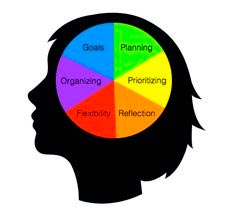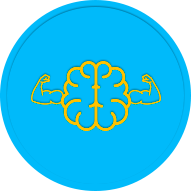
‘Brain-Fit’ Exercise Programme
Dr John Ratey, an associate clinical professor of psychiatry at Harvard Medical School, says exercise and learning go hand in hand. Physical activity not only facilitates the birth of new brain cells, it also produces smart chemicals that promote learning. Learning and memory grow concurrently with our ability to move especially in children. As far as our brains are concerned, if we’re not moving, there’s no real need to learn anything.Thus exercise improves learning on three levels:
- It optimizes your mindset, by improving attention, alertness, and motivation related with the release of biochemical that regulate mental processes, mood, pleasure, and pain
- It supports nerve cells to bind to one another, which is the cellular foundation for learning new information.
- It enhances the development of new nerve cells particularly in the hippocampus, an area of the brain related to memory and learning.

 “Think of exercise as medication,” says Dr Ratey. A better way to help young people with neuro-developmental disorders like autism and attention deficit/hyperactivity disorder is to get them more exercises that are not only fun but also ‘brain-stimulating’ with interesting movements and skills to learn. Sports and exercises could improve their psychological skills such as concentrating, planning, organising, remembering and, importantly, problem-solving. A lack of these skills makes it hard for some people with special needs to function effectively in the school or work setting.In addition, numerous research studies have strongly supported that exercises are beneficial to people who are dealing with stress, depression, anxiety and other mental health issues.
“Think of exercise as medication,” says Dr Ratey. A better way to help young people with neuro-developmental disorders like autism and attention deficit/hyperactivity disorder is to get them more exercises that are not only fun but also ‘brain-stimulating’ with interesting movements and skills to learn. Sports and exercises could improve their psychological skills such as concentrating, planning, organising, remembering and, importantly, problem-solving. A lack of these skills makes it hard for some people with special needs to function effectively in the school or work setting.In addition, numerous research studies have strongly supported that exercises are beneficial to people who are dealing with stress, depression, anxiety and other mental health issues.
Therefore, with his numerous years of experience and expertise in applied psychology and sport sciences, Gerald designs customized exercise programme, utilizing both psychological intervention and fitness instruction, to help individuals and their caregivers manage these conditions:
- ADHD, Autism and Learning Disability
- Stress, Depression and Anxiety
- Dementia
- Chronic Pain
And build up the brain and body in healthy and constructive ways:
- Develop both the brain and the body through complex movements and fun physical activities.
- Customize the ‘Brain-Fit’ exercise program for all levels of psychomotor skills and health conditions
- Minimize the impact on the joints

